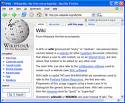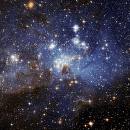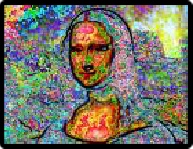
















NEXT
BACK
NEXT
BACK








Site Search
ENFORMATION SUMMATION
An Emerging Worldview : The Enformationism hypothesis suggests that an automatic, gradual, global adjustment to our current scientific paradigms and to our philosophical worldviews is already in the process of transforming what thoughtful people see and how they interpret the world around them. If so, any further ethical and technical progress may be due largely to the subconscious Memetic Evolution of human culture. In that case, there is little that any individual can do to alter the trajectory of the autopoietic arrow which is already in the air. But each person can intentionally build his personal philosophy upon the best evidence and logic available. For that reason a group of scientists and philosophers has established an ongoing project with the goal of developing “a kind of methodology for world-
One of those documents includes The Seven Components of a WorldView, with a list of questions “that must be accounted for in every world view” [29]. This is an abbreviation of that list:
1. What is the nature of our world?
2. Global explanatory principles.
3. General principles by which we should organize our actions.
4. What future is open to us?
5. Criteria for selection of possible futures.
6. Construct an image of this world.
7. Propose partial answers to these questions.
If rational people sincerely followed the recommended procedures, surely the outcome would be “one unified world view”. So the document goes on to reveal that, “Reaching such a consensus is one of the aims of world-
An Humble Postulation : A worldview derived from the Enformationism concept might answer the questions above as follows.
1. The nature of the world is a creative process rather than a created product.
2. The universal explanatory principle is Generic Information, which first in-
3. We may derive or improve our Moral Principles with the deeper and broader understanding of the world, and our place in it, from the 21st century paradigms of Enformationism, as opposed to 19th century Materialism, or pre-
4. Our forecasts of the future may be more accurate if we employ the more up-
5. Future options may become clearer as we learn to distinguish between physical things and metaphysical concepts, and to unify our picture of the fragmented, Real vs Ideal, past.
6. Our personal and communal image of the world of Now should resolve and integrate into a more harmonious whole.
7. Any specific answers to these, and all other philosophical inquiries, will of course remain subject to change as our collective understanding progresses, but we all have to start somewhere, usually nearer the beginning than the end of the question.
E n d o f T h e s i s




Meta-

DISCLAIMER #3
This is a thesis, but not yet a complete theory. It may never be a “Realist” or “Descriptive” Theory –-

INTEGRAL
WORLDVIEW
“A worldview is a coherent collection of concepts and theorems that must allow us to construct a global image of the world, and in this way to understand as many elements of our experience as possible.
—-
From Fragmentation
to Integration
CATCH 42
As a scientific paradigm, the Enformationism hypothesis has the serious "drawback" of requiring not only a Universal Mind to generate the generic information, but also a First Cause or Deity (a hypothetical entity) to "produce" existence-
WORLDVIEW
Lost somewhere between immensity and eternity is our tiny planetary home. In a cosmic perspective, most human concerns seem insignificant
—-

Meta-